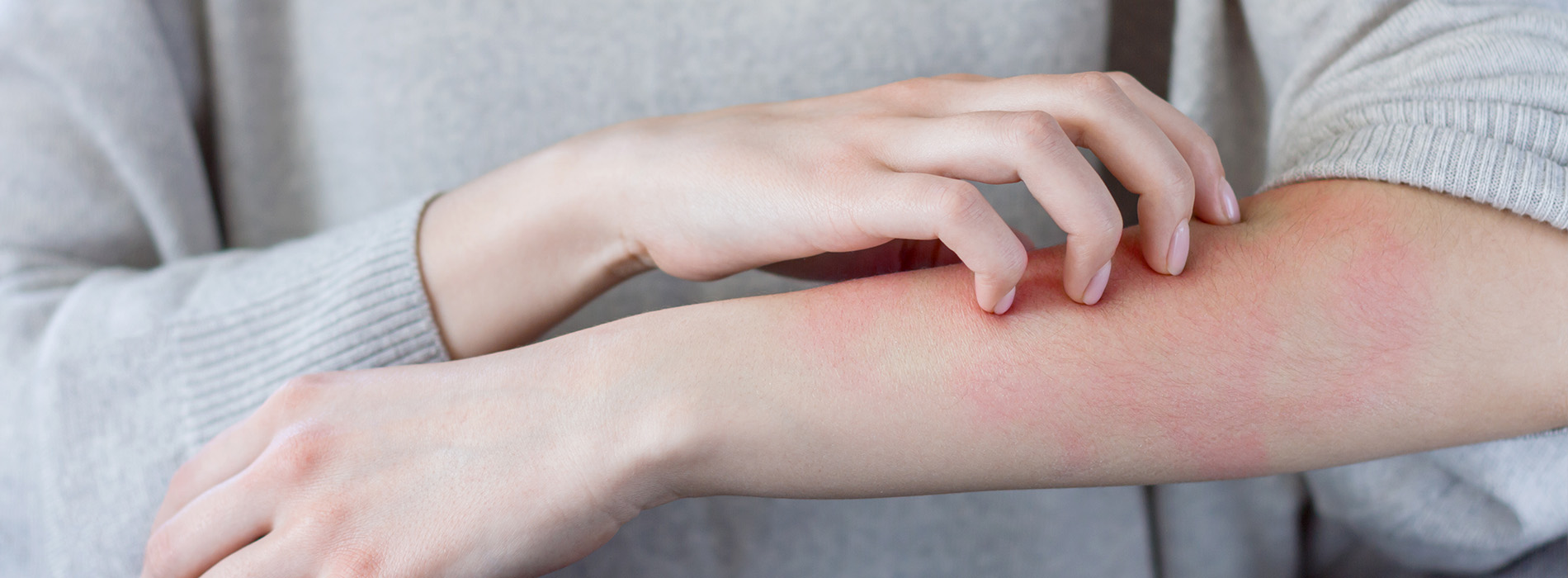Lost in Lutherville? Click here for directions to our office!
Lost in Lutherville? Click here for directions to our office!

At the offices of Advanced Allergy & Asthma Centers, we provide a comprehensive range of services to address allergy, asthma, respiratory issues, and a broad spectrum of skin problems, including contact dermatitis.
Contact dermatitis is an annoying, uncomfortable, and non-contagious skin reaction that occurs in response to an allergen or irritant. Characterized by a red, itchy rash, it most often develops on areas of the body that have directly contacted a triggering or offending substance.
The signs and symptoms of contact dermatitis may include:
Most instances of contact dermatitis fall into one of two categories. They are either allergic contact dermatitis or irritant contact dermatitis, the latter being the most common type.
While allergic contact dermatitis develops in response to a substance triggering the immune system, an irritant contact dermatitis develops purely in reaction to a chemical irritating the skin’s outer layers.
The third type of contact dermatitis, known as photocontact dermatitis, is far less common. It occurs when the active ingredients in a skin product get exposed to the sun.
Diagnosing contact dermatitis begins with a careful review of a patient’s medical history, discussing their lifestyle and history of exposure to potentially offending substances.
As part of a clinical exam, the rash and its location are also evaluated. For suspected cases of allergic contact dermatitis, diagnostic testing may include skin patch tests.
As with other types of sensitivities and allergic reactions, avoiding offending substances or chemicals is the key to preventing contact dermatitis and helping resolve an outbreak.
In mild cases, some basic self-care measures, anti-itch creams, and over-the-counter antihistamines may be all it takes to get better. More uncomfortable or severe outbreaks may require prescription corticosteroid creams, oral steroids, and immunosuppressive medications.
Although most cases of contact dermatitis are more annoying and uncomfortable than dangerous, persistent scratching and blistering can cause the skin to break. This situation increases one’s risk of infection and the need for some form of antibiotic therapy.
It’s also important to contact our office if a rash causes excessive discomfort, is painful, widespread, affects the face or genitals, gets close to your eyes or mouth, an infection is present, or your skin fails to get better within a few weeks. Although rare, anaphylaxis requires immediate emergency care.